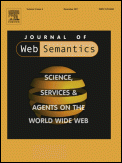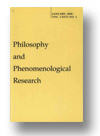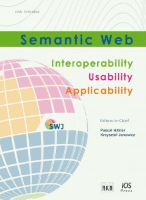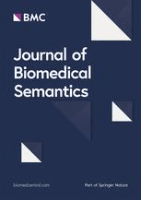
Applied Ontology
Scope & Guideline
Pioneering Insights in Computer Science and Linguistics
Introduction
Aims and Scopes
- Ontology Development and Management:
Focuses on methodologies for creating, managing, and reusing ontologies, addressing challenges related to consensus creation and representation. - Application of Ontologies in Various Domains:
Explores the application of ontologies in diverse fields such as healthcare, legal terminology, smart cities, and automotive industries, emphasizing practical implementations and case studies. - Interdisciplinary Approaches to Knowledge Representation:
Encourages the integration of ontological frameworks with other disciplines, such as linguistics, computer science, and social sciences, to enhance knowledge representation. - Formal Ontology and Foundational Models:
Examines foundational ontologies and their role in providing a structured basis for semantic interoperability and data integration across systems. - Ontology Evaluation and Enhancement:
Investigates methods for assessing the effectiveness of ontologies and improving their design to better meet user needs and application requirements.
Trending and Emerging
- Integration of Ontologies with Emerging Technologies:
Recent works emphasize the convergence of ontologies with technologies such as blockchain and large language models, suggesting a growing interest in how ontologies can enhance these technologies. - Dynamic and Adaptive Ontologies:
There is an increasing focus on developing ontologies that can adapt to real-time data and user interactions, exemplified by papers discussing dynamic frame-based ontologies and quality-of-life models. - Interdisciplinary Research in Ontology:
A trend towards interdisciplinary approaches is evident, with publications merging insights from linguistics, social sciences, and informatics to create more robust ontological frameworks. - Ontology in User-Generated Content:
The application of ontological models to analyze and improve user-generated content, particularly in smart city contexts, is gaining traction as a relevant and impactful area of study. - Collaborative Ontology Development:
The importance of collaborative efforts in ontology development is highlighted, with discussions around guidelines for ontology reuse and consensus-driven approaches becoming more prominent.
Declining or Waning
- Historical and Cultural Ontologies:
Topics related to the ontological modeling of historical artifacts and cultural heritage, such as the 'ideal Benedictine Monastery' and 'Arabic ontology', are less frequently addressed in recent publications. - Basic Formal Ontology (BFO) and Its Variants:
Although foundational ontologies like BFO were once prominent, their discussion appears to be decreasing, potentially overshadowed by more dynamic and application-oriented ontological frameworks. - Traditional Knowledge Representation Models:
Themes centered around conventional knowledge representation techniques are becoming less prevalent as the focus shifts towards more innovative and interdisciplinary approaches. - Single-Domain Specific Ontologies:
A noticeable decrease in the development of ontologies tailored to very specific domains, as the community moves towards more generalized frameworks that can be adapted across multiple domains. - Static Ontological Structures:
The interest in static, unchanging ontological models is waning in favor of dynamic and evolving ontologies that can adapt to changing data and user needs.
Similar Journals

Journal of Web Semantics
Transforming Challenges into Solutions in the Digital Landscape.Journal of Web Semantics, published by ELSEVIER, stands at the forefront of interdisciplinary research in the realms of Computer Networks and Communications, Human-Computer Interaction, and Software Engineering. With an impressive impact on the academic landscape, this journal holds a significant Q2 quartile ranking in multiple fields as of 2023, reflecting its strategic positioning within the top tier of scientific journals. As a valuable resource for researchers, professionals, and students, it provides a platform for innovative articles addressing contemporary challenges and advancements in web semantics—a crucial aspect of improving web usability and data integration. Operating with a Scopus Rank that places it in the commendable 71st, 67th, and 60th percentiles across its respective categories, the journal facilitates access to high-quality research findings, fostering a vibrant community of scholars dedicated to enhancing the synergy between technology and human interaction. The Journal of Web Semantics continues to evolve, marking its significance from 2003 to 2024 and offering a vital space for discourse that shapes the future of web technologies.

JOURNAL OF LOGIC AND COMPUTATION
Fostering Innovative Research in Theoretical FrameworksJOURNAL OF LOGIC AND COMPUTATION, published by Oxford University Press, is a leading peer-reviewed journal dedicated to advancing research in the intersections of logic, computation, and theoretical frameworks of computer science. With an ISSN of 0955-792X and an E-ISSN of 1465-363X, the journal has established itself within academic circles, boasting significant impact evidenced by its category quartiles, including a Q1 ranking in Arts and Humanities (miscellaneous) and a Q2 in Logic for 2023. This prestigious journal emphasizes interdisciplinary approaches to understanding computational systems, hence targeting a diverse audience of researchers, professionals, and students keen on exploring provocative questions in logic and computation. Although not open access, the content is highly valuable, reflecting contemporary challenges and advancements in the field. With over three decades of published work, spanning from 1990 to 2024, the journal continues to contribute richly to the discourse surrounding logical methodologies and computational innovations, making it an essential resource for those engaged in these dynamic areas of study.

Foundations of Chemistry
Exploring the Roots of Chemistry Through TimeFoundations of Chemistry is a pioneering journal published by Springer, aimed at advancing the understanding of fundamental concepts in the field of chemistry from both historical and contemporary perspectives. With the ISSN 1386-4238 and E-ISSN 1572-8463, the journal covers diverse topics within general chemistry, biochemistry, and the philosophical underpinnings of the chemical sciences. Though its availability in Scopus has been discontinued following a converged publication period from 2005 to 2016, the journal remains notable for its high ranking in the Arts and Humanities, where it holds the 60th position in a competitive field, as well as its stable yet modest presence in general chemistry and biochemistry categories. This journal serves not only researchers and professionals but also students seeking an in-depth understanding of the evolution and foundation of chemical knowledge, making it an essential resource for anyone engaged in these disciplines. Readers can expect rigorous scholarship that fosters a deeper appreciation for the intricate connections within chemistry and its historical context.

Open Philosophy
Advancing Philosophy Through Open Access.Open Philosophy, published by DE GRUYTER POLAND SP Z O O, is a premier open-access journal that has been fostering scholarly discourse in the realm of philosophy since its inception in 2018. Operating out of Germany, this journal has gained significant traction, now ranking in the Q2 category for philosophy with a commendable 80th percentile in Scopus, positioning it among the top 20% of journals in its field. With a dedicated focus on illuminating philosophical discourse, Open Philosophy provides a platform for innovative research and critical engagement, catering to the needs of researchers, professionals, and students alike. Its commitment to open access ensures that cutting-edge philosophical ideas are readily available to a global audience, contributing to the democratization of knowledge in the discipline. The journal's dimensions encompass a broad spectrum of topics within philosophy, seeking to expand theoretical frameworks and discussions from 2018 through to 2024 and beyond. Discover the transformative power of philosophical inquiry with Open Philosophy, where ideas flourish in an accessible and inclusive academic environment.

Epekeina-International Journal of Ontology History and Critics
Fostering Critical Dialogue in Philosophy and HistoryEpekeina - International Journal of Ontology History and Critics is a distinguished academic journal published by CENTRO INT RICERCA FILOSOFICA, dedicated to exploring the intricate dimensions of ontology, history, and critical analysis. As a vital source for scholars, professionals, and students in the fields of philosophy and history, this journal aims to foster interdisciplinary dialogue and advance understanding of ontological theories and their historical implications. Though currently not Open Access, the journal upholds rigorous academic standards reflected in its commitment to publishing high-quality research that shapes contemporary philosophical discourse. Researchers can look forward to thought-provoking articles and critical essays that challenge conventional perspectives and stimulate scholarly discussions. With an ISSN of 2281-3209, Epekeina serves as an essential platform for disseminating significant findings and fostering intellectual growth within the academic community.

PHILOSOPHY AND PHENOMENOLOGICAL RESEARCH
Exploring the Depths of Thought and ExperiencePHILOSOPHY AND PHENOMENOLOGICAL RESEARCH, published by Wiley, stands as a premier journal within the realms of Philosophy and the History and Philosophy of Science, boasting an impressive Q1 ranking in both categories as of 2023. With the ISSN 0031-8205 and E-ISSN 1933-1592, this esteemed journal has been a pivotal platform for philosophical inquiry since its inception in 1970. Dedicated to advancing understanding in phenomenology and its implications across various disciplines, the journal encourages scholarly discourse through high-quality peer-reviewed articles that explore both classical and contemporary philosophical thought. With a Scopus ranking of #46 in Philosophy and #20 in the History and Philosophy of Science, PHILOSOPHY AND PHENOMENOLOGICAL RESEARCH operates at the confluence of rigorous academic investigation and innovative ideas, making it an indispensable resource for researchers, professionals, and students alike. As part of its commitment to facilitating scholarly communication, the journal does not currently offer open access but ensures accessibility through various institutional subscriptions. Discover the rich tapestry of philosophical inquiry that shapes our understanding of the world in its pages.

International Journal of Semantic Computing
Bridging Disciplines for a Smarter TomorrowThe International Journal of Semantic Computing is a premier scholarly publication focused on the intersection of artificial intelligence, computer networks, and linguistics, published by World Scientific Publishing Co PTE Ltd. Since its inception in 2007, this journal has strived to advance the field of semantic computing by promoting innovative research and interdisciplinary collaboration among professionals and academics. With a diverse scope that spans across various categories including Artificial Intelligence, Information Systems, and Linguistics, it boasts commendable rankings, particularly in the fields of Linguistics (77th Percentile) and Linguistics and Language (Rank #259/1167). The journal caters to a broad audience by offering critical insights and cutting-edge studies, thereby contributing significantly to knowledge enhancement in semantic technologies and computational linguistics. Although it does not offer open access options, its rigorous peer-review process ensures the publication of high-quality research that is invaluable for both researchers and students seeking to deepen their understanding in these rapidly evolving areas.

PHILOSOPHIA
Igniting Critical Discourse in PhilosophyPHILOSOPHIA is an esteemed academic journal published by Springer, focusing on the diverse field of philosophy. With an ISSN of 0048-3893 and E-ISSN 1574-9274, this journal serves as a prestigious platform for innovative philosophical discourse and research. Based in the Netherlands at VAN GODEWIJCKSTRAAT 30, 3311 GZ DORDRECHT, PHILOSOPHIA has garnered a reputation for its high-quality contributions, maintaining a Q1 classification in Philosophy and ranking 229 out of 806 in the Scopus Arts and Humanities category, placing it within the top 71st percentile. The journal's scope spans critical analyses and contemporary debates, making it an essential resource for philosophers, scholars, and students seeking to engage with cutting-edge ideas. Although it does not currently offer open access, its rigorous review process and academic integrity ensure that published articles are of the highest scholarly standard. With its convergence of contributions since 1971 and ongoing commitment to advancing philosophical inquiry, PHILOSOPHIA remains pivotal in shaping both theoretical and practical understandings within the discipline.

Semantic Web
Transforming Knowledge through Semantic CollaborationSemantic Web is a leading scholarly journal dedicated to the advancement of research in the area of semantic web technologies and their applications. Published by IOS PRESS, the journal has established itself as a vital resource for scholars and practitioners since its inception in 2010, with a continued focus on fostering interdisciplinary collaboration through its publication of pioneering research in Computer Networks and Communications, Computer Science Applications, and Information Systems. The journal currently holds a prestigious Q2 ranking across these categories and is indexed in Scopus, reflecting its strong academic impact with rankings in the top 20% of its field. Although the journal operates under a subscription model, it remains committed to disseminating high-quality research that addresses contemporary issues in the semantic web domain. As the field continues to evolve, Semantic Web seeks to facilitate innovation, collaboration, and the development of standards, making it an essential outlet for researchers, professionals, and students keen on exploring the transformative potential of semantic technologies.

Journal of Biomedical Semantics
Pioneering Research in Biomedical Semantic TechnologiesThe Journal of Biomedical Semantics is a prestigious open-access journal published by BMC since 2010, dedicated to advancing the field of biomedical informatics through the lens of semantics. With an ISSN of 2041-1480, this journal caters to an international audience from its base in the United Kingdom. It focuses on the convergence of computer science, health informatics, and information systems, providing a vital platform for innovative research and knowledge dissemination. The journal is ranked in the second and third quartiles across several relevant categories in 2023, including Q2 in Computer Networks and Communications and Q3 in both Computer Science Applications and Health Informatics. With Scopus rankings highlighting its relevance in various subfields, this journal serves as a critical resource for researchers, professionals, and students alike, promoting high-quality, peer-reviewed articles on topics encompassing advanced computational methods and semantic technologies in healthcare. As a fully open-access resource, it ensures broad accessibility of groundbreaking research findings, making vital contributions to the ever-evolving landscape of biomedical semantics.